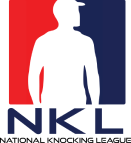Speaker 1: (00:02)
Bill, Can I help you?
Speaker2: Hey listen up, I’m bringing you the best content to ever exist in the door to door industry from sales leadership, recruiting, impersonal development.
Speaker 1:
Why would I need that?
Speaker 2:
Because never before have we been able to collaborate with the top experts in their industries, sharing their secrets and techniques and what makes them the best.
Speaker 1: Wait, who? Who are you?
Speaker 2:
I’m your host. Sam Taggart, creator of the D2D experts in D2Dcon. Is there a place we can sit down?
Speaker 1:
Well come on in.
Speaker 3:
Vanilla is the fastest way to increase your Google and Facebook reviews through text with a 98% open rate. Vanilla reviews is the simplest cheapest way to interact and engage with customers. Visit us at vanillagood.com for more information.
Speaker 4: (00:49)
Hey Everybody. This is Sam Taggart, your host with the D2D podcast. And today I’m actually going to be talking about the three major pitfalls that people go through in the summer where a lot of times you know, you, you go out, maybe it’s your first year and you’re like, “I’m gonna be so good at this”. And then you get your butt kicked.
Some of you guys maybe had a good first week and then you get your butt kicked and all of a sudden you kind of are at this point in the summer right now where it’s kind of like, “Oh man, I was hoping I was gonna make 30 grand this year and now maybe on track to make 10”. And a lot of us, we, you know, we had these, this goal in mind or we had this idea of like what the summer is going to look like.
Speaker 4: (01:30)
And you may be even a veteran rep and you’re like, shoot, last summer I was at x, Y,Z in the summer. And now I’m like way behind where I was even last year. And a lot of times we run into this where we, we don’t really control these thoughts. And this is kind of what I want to talk about real quick. So the thoughts going through our heads are, you know, well, maybe this summer isn’t, maybe this job isn’t for me. Maybe this is, you know, I’m not cut out to be a salesperson or maybe, uh, I, I chose the wrong company, I should have gone with so and so. You know, that’s a common one I get. Or another one that we get a lot is, you know, I should have trained more right? I the area or the product or the manager’s not training me. I’m not getting enough attention from this, this manager.
Speaker 4: (02:23)
And if he was, if he was there more knocking with me, I probably would be a lot more successful. And anyway, so, so what I’m gonna dive into is kind of these three major pitfalls that we really run into and to kind of what creates these thoughts. And if we can control these and if we can get in a spot where we’re actually intentionally living, intentionally selling, intentionally taking control over our day, our routine, our mindset, our attitude or work ethic, and we can get intentional and take ownership, that, and we’re going to have a much better outcome because believe me, I’ve been way behind myself. Come the end of May and I’ve turned my summers around and I just said, hey, I, I, and this takes us to number one, which is there’s a fork in the road and this fork in the road happens where we initially have a goal.
Speaker 4: (03:19)
It’s like, Hey, I want to sell 300 this year and if I do a hundred every month, I’ll do it. Or if I do 50 every month or whatever, right? So, and all of a sudden we’re behind on that goal and we and and we have this fork in the road where we decide, okay, am I going to be a top performer in my office or I’m I going to fit in the middle of the crowd or am I going to be just one of those bad guys that just wasn’t really cut out for this and kind of coasted out. I’m just going to kind of coast out because I don’t want to be that guy that gets sent home or I don’t want to be the guy that quits. I at least I’m going to be the guy that’s still here, but I’m okay sitting at the bottom.
Speaker 4: (03:55)
So we have this decision making point where we kind of identify ourself usually by the second, third, fourth week of the summer of what kind of rep we’re going to be in the office. And it’s critical that we are aware of that because often times like we make the wrong decision and there’s a lot of guys that could have been really, really good at this, but come this fork in the road. They really just decided, ah, I’m not really all in, or oh, this isn’t really for me. So one of the things that I’d recommend in this situation is just make the decision that you don’t have to put a label on yourself. You don’t have to let other people put a label on you. You don’t have to be identified as anybody. Yet here at this point in the summer, because I’ve interviewed some of these, the top top performers, you know, I started out pretty quick, but like I would say 50% of these top, top industry x like experts, they had rough first Bunce.
Speaker 4: (04:54)
And if they would’ve made the decision in the fork in the road, they wouldn’t be there 10 years down the road, VP of sales or some big company, they’d probably be, you know, working some dumpster diving job like some normal whatever job. And they came to this decision where they said, no, no, no, I’m going to double down. I’m going to put more effort into training. I’m going to change my mindset and say I’m the one that controls the breakthroughs. I’m the one that controls my results. And took ownership over that instead of started to create all these excuses. Uh, excuses are always the biggest killer to success. And if you at this point in the fork in the road, realize that 50% of the top, top industry experts, they went through something like this, you know, different goal door award winners, different, you know, owners, managers, they’ve all had a bad first month.
Speaker 4: (05:45)
But that was what they did at this point in the summer that really made them who they are today. And I think this fork in the road is really where, you know, as a leader you need to make sure you’re identifying where are starting to really label themselves and come kind of cement themselves. We call this gridlock where they cement themselves into a firm position of what they are, who they are, what they can sell and what they’re capable of. You know, they may be give themselves a week or two because they’re like, ah, I’m learning. But then now we’re at the point where learning might kind of be a thing of the past. Like it’s like you should have learned how to sell by now obviously you’re going to learn to be better and sharpen the sob, but you’ve given, you’ve been given the tools most likely at this point in the summer.
Speaker 4: (06:31)
So the second killer is the goals get scary and the goals are getting scary as you start to like either up your goal. I remember my f one of the year, I did 400 uh, I remember, no, no, no it was the year I did 300 so my first year as sewing for vin minute. Um, the year before I did 150 and so our hundred 67 and I’d put this like goal to do 200 cause I thought that was like a really good increase, right? Go from one 67 to 200 and come end of May. I’m realizing wow, I’m like easily going to hit 200 I better bump it up to two 25 and you know, I, I, I was like okay let’s do this. And I was like, shoot, I’m an easily hit to 25 what if we bumped it up to like two 50 and I kept bumping up my goal and there was a point, right kind of come into July, maybe mid July is I was like I could coast out the end of the summer.
Speaker 4: (07:31)
I well surpassed 200 of what my goal was. But maybe if NF, I put the goal 300 man, that’d be really pushing. Like I could coast it out, hit my two 50 and and, and have a good year and I let myself get really uncomfortable with putting the goal out there of I’m going to do 300 I’m going to be the guy that goes out and fricking does it. Even if I don’t hit it on, maybe I at least shot for it. But the ego in me was like I don’t want to shoot for it and I don’t want to tell people I want to get 300 cause if I tell them and I shoot for it and I don’t hit it now I look like an idiot and that’s where it goes. Get scary, right? We’ve always been putting out, oh, I’m going to sell 200 I’m a sell Xyz or whatever and we are ego.
Speaker 4: (08:19)
Believe it or not, our ego is something that actually gets in the way. And our ego says, well, I don’t really talk about my goals anymore because I originally said 200 and now I’m only on track to hit a hundred so I’m just gonna Kinda like throw the goals out because goals make me scared. And if I talk about him and I don’t hit him, I just feel worse about myself. So my whole like coaching or shift would be change your paradigm to say goals or just goals. Like it’s what I’m doing every day. Like put the goal out there, make it uncomfortable, talk about it and realize that if you don’t hear your goal, it’s not like anybody’s looking at you and being like, Oh, you’re so stupid. Where reality, we feel that our, our own cells will naturally tell ourselves you’re an idiot because you didn’t hit your goal.
Speaker 4: (09:11)
But I don’t think anyone else out there watching you is saying, oh, he didn’t hit his goal. He’s stupid. So I think the reality is we let our goal sometimes intimidate us and that actually hurts our production, creates more anxiety. So just take goals for goals. They’re just for what they are. They’re really just attain an intangible fictional thing, set goals, but realize, hey, every day my job is to stay super committed to an outcome. And as long as I can hit my numbers every hour, every day, stop thinking about the 400, the 300 or whatever the goal is. Start thinking about it on a minute by minute, hour by hour activity so that you’re not getting this anxiety that sometimes goals create. That’s another big tidbit. Um, another one is the third or the third big thing is you’re in the wrong click. What do I mean by this is oftentimes in the summer you’ve created these groups of friends and you sometimes navigate to the people that are doing what you’re doing.
Speaker 4: (10:21)
Meaning, if you’re sucking, you then go hang out with the other guys that are sucking cause you want to validate each other in the sucking life and you create excuses. So you know, a good example is, you know I’ve been bailing all week, I go find comfort in, and another guy that went bagels all week and we talk about, oh the area, oh they always drop us off in the neighborhood with no money. Or they drop us off in the rich neighborhoods with they drop like whatever excuse you’re going to come up with. But then you start to formulate these little cliques and this click right here. We tend to go out to area five hours later than everybody else goes out because that’s just what we do. And or we dip out and going to movies together in the middle of the day because that’s what we do. Versus the click you want to be in is the click where everyone’s performing at a high level and those guys tend to hang out with each other.
Speaker 4: (11:15)
Hey, I’m selling five a day. Like, I want to resonate with other guys selling five a day because I don’t like hanging around the crabs in a bucket. The guys that are really trying to pull me down. So find a, be aware that clicks tend to formulate in every office, uh, with, with sales guys. And so if you can recognize this and say, okay, where am I hanging out? Who am I hanging out with? Who am I letting influence me? Versus, Hey, I know what I need to be doing. I don’t care what everyone else is doing. I’m not letting everyone else influence me. And therefore you’re creating the leader of the click, your becoming a leader of a new click. If your office is lacking that or you’re latching onto the people that are performing at a high level and you’re saying, let me do exactly what they’re doing, let me work out when they work out, let me eat what they eat.
Speaker 4: (12:07)
Let me knock. When they knock, let me do everything they’re doing and just like leach onto them. And a lot of them, they’re usually pretty open to you doing that. As long as you’re willing to keep up. If you’re dragging them back. If you’re like dragging your feet, slow to area, slow to keep up, they’re going to just be like, yeah, why don’t we like hang with this guy? So the major three things, I wanted to keep this as short podcast because I felt like right now is a critical piece in people’s peak seasons. I mean we have the most say daylight, we have good weather, we have, you know, people home school just got out. So people are, there’s a lot of activity in neighborhoods and things like that. And I think a lot of people, they’re either already burnt out from preseason and they’re really not maximizing the good that’s happening right now.
Speaker 4: (12:53)
Or they’re procrastinating their performance and they’re saying, oh come July and August, I’ll, I’ll, I’ll, I’ll turn on the steam. Or they’ve already made these decisions in their mind that they’re just okay at this versus taking ownership and saying you can be great. And that’s like, that’s what’s so important is people are like, they, they underestimate how good every single one of you guys listening to this watching this can be. And I feel like we late, like I remember when I was like my first year and I did 80 something accounts and this is all alarms and I saw the guys doing 300 and I was like, Nah, that’s like them. Like there’s no way that’s me. But once I took ownership and just said I could do that, like what’s different about them than me? I worked the same hours. I train how they train, I do what they do.
Speaker 4: (13:45)
Like I can do that. And really the belief system changed because a lot of us, we label ourselves as like, where are these guys? They’re those guys that are awesome. So change that. So my invitation today is just honestly go out. They’re fricking Krusha not Saturday and you should be already out. So if you’re watching this, shame on you, if you’re not watching, this should be watching this maybe later tonight or tomorrow or whatever. But anyway, I hope that you got some value out of this. Uh, appreciate the feedback. Also, the next few weeks I’m actually going to be answering questions. This was a common question I’ve been getting on my dms, so hit me up with some good questions. If I find a common thread and I’m like, oh, everybody’s kind of asking me about this. Like a guy today, he just asked me, he’s like, dude, I’m struggling training my reps versus selling.
Speaker 4: (14:32)
He’s like, I’m having this balance between tough love and like hold their hand and that could be a good next podcast. So Dm me, message me, comment on here if you’re like, hey, I really want some help around this. I’d love to give some value throughout these peaks seasons and hopefully, you know, kind of keep them all simple nuggets and a how help you guys out. So to show this in your correlation meeting or whatever. But anyway, much love, big announcement before I go door to door con, January 16th through the 18th there’s a mastermind day for all the leaders and executives. Then there’s like all sales on Friday, Saturdays. So we’ve got a cool new schedule and that’s, that’s happening. We’ve got speakers that we’re trying to interview right now. We’ve signed a couple. Um, but yeah, make sure that you put that on your calendar and make sure that your owner or manager doesn’t plan any other events during that.
Speaker 4: (15:24)
Uh, we’ve had some companies that just overlap their event, but make it coordinate. I would recommend if you’re going to overlap an event, like some companies have been like, hey, we’ll do our company awards night that night when there’s no event happening or, or Saturday night would be a great team activity. So overlap your events, but like weave them in the schedule. Don’t just like, don’t let your owner company planning an event during the exact same time we’ve had a lot of people bugged because they weren’t, you know, they were torn between going to both. So just make sure you kind of know the dates, put those on the calendar. A much love, hope to see you guys all there. And, uh, Peter























